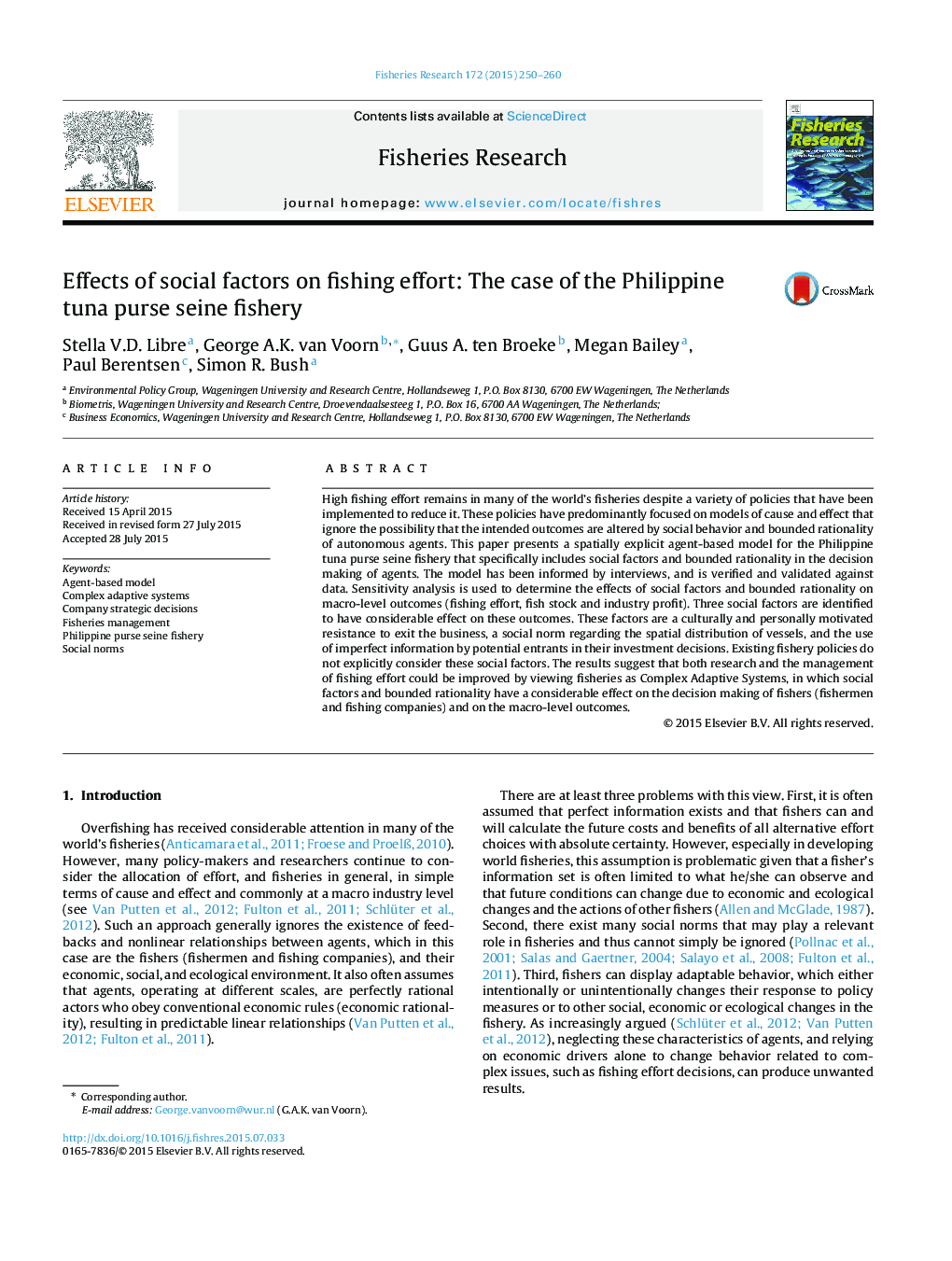| Article ID | Journal | Published Year | Pages | File Type |
|---|---|---|---|---|
| 6385443 | Fisheries Research | 2015 | 11 Pages |
Abstract
High fishing effort remains in many of the world's fisheries despite a variety of policies that have been implemented to reduce it. These policies have predominantly focused on models of cause and effect that ignore the possibility that the intended outcomes are altered by social behavior and bounded rationality of autonomous agents. This paper presents a spatially explicit agent-based model for the Philippine tuna purse seine fishery that specifically includes social factors and bounded rationality in the decision making of agents. The model has been informed by interviews, and is verified and validated against data. Sensitivity analysis is used to determine the effects of social factors and bounded rationality on macro-level outcomes (fishing effort, fish stock and industry profit). Three social factors are identified to have considerable effect on these outcomes. These factors are a culturally and personally motivated resistance to exit the business, a social norm regarding the spatial distribution of vessels, and the use of imperfect information by potential entrants in their investment decisions. Existing fishery policies do not explicitly consider these social factors. The results suggest that both research and the management of fishing effort could be improved by viewing fisheries as Complex Adaptive Systems, in which social factors and bounded rationality have a considerable effect on the decision making of fishers (fishermen and fishing companies) and on the macro-level outcomes.
Related Topics
Life Sciences
Agricultural and Biological Sciences
Aquatic Science
Authors
Stella V.D. Libre, George A.K. van Voorn, Guus A. ten Broeke, Megan Bailey, Paul Berentsen, Simon R. Bush,
